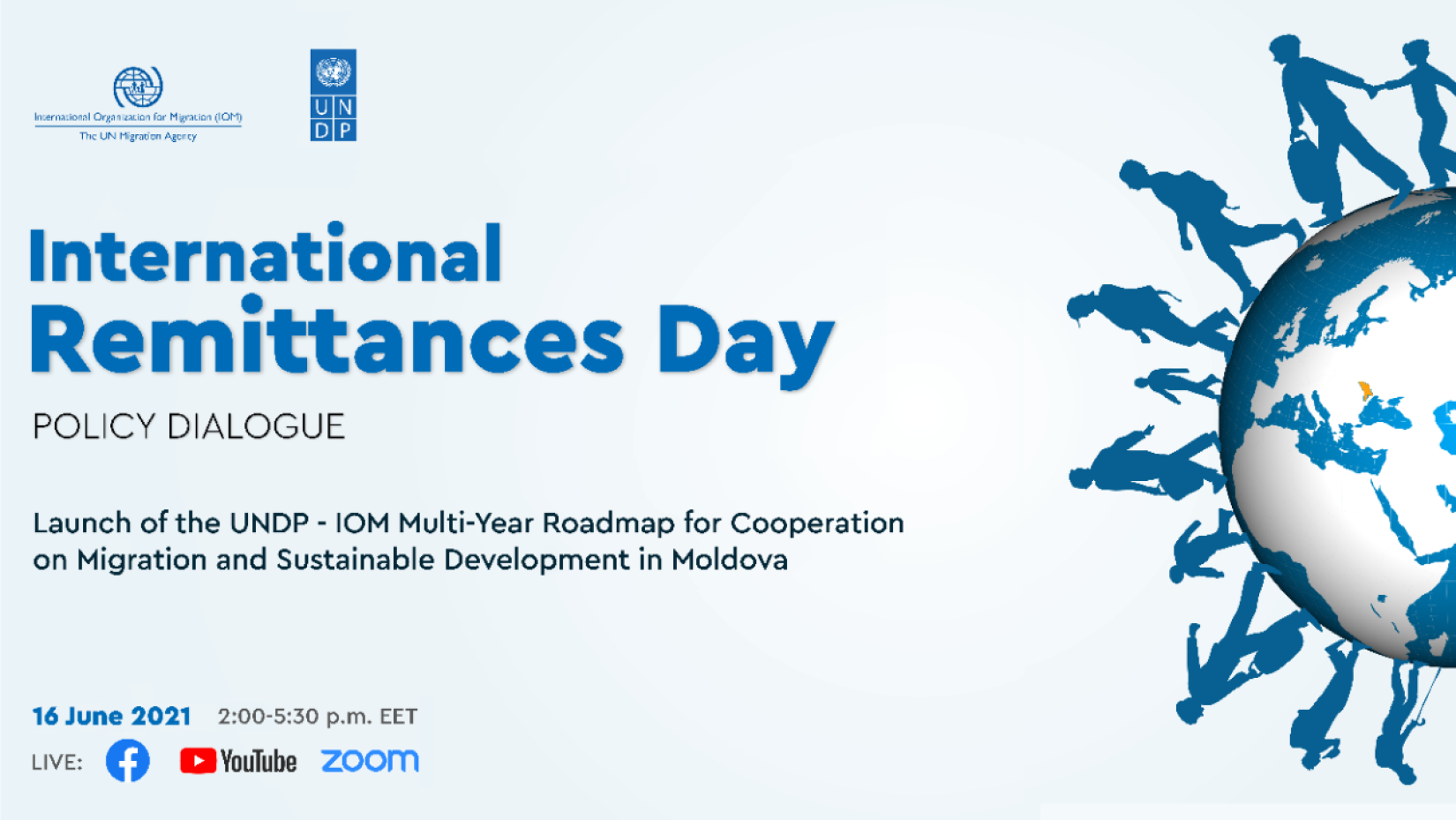UNDP and IOM promote equal opportunities for Moldovan migrants and support economic recovery by engaging the diaspora
16 June 2021
The United Nations Development Programme (UNDP) and the International Organisation for Migration (IOM) presented their roadmap for cooperation today, 16 June, on the International Day of Family Remittances. The strategic document will contribute to promoting equal opportunities for Moldovan migrants and their families in accessing prevention and protection measures in the context of the COVID-19 pandemic. The roadmap envisages support for economic recovery by engaging both the diaspora and local communities.

The roadmap was launched during a policy dialogue attended by representatives of development partners, local authorities, academia, civil society, and the private sector
“Our common vision covers a broad range of priority areas, from addressing the root causes of emigration – to engaging diaspora in the development of the country, including economic development, enhancing labour migration and ensuring opportunities for reintegration. We believe that our collective support can meaningfully contribute to these processes through well-established partnerships, consolidated methodologies, sustainable interventions and thought leadership,” said Dima Al-Khatib, UNDP Resident Representative to the Republic of Moldova.
“Diaspora engagement will, or the lack thereof, will be among the defining features for the Republic of Moldova in the coming years. But in this case, it really takes a village; the elaboration of this roadmap has benefited from extensive contributions from various Moldovan public authorities, diaspora actors and civil society, and each planned intervention will be based on a rigorous participatory process taking into account the perspectives, the considerations and concerns of all stakeholders”, mentioned Lars Johan Lönnback, IOM Chief of Mission to Moldova.
The UNDP-IOM Multi-Year Roadmap for Cooperation on Migration and Sustainable Development in Moldova is based on five pillars:
- Statistical data, causes of migration, and regional implications
- Strong and informed diaspora, civic engagement, and employment with rights
- Opportunities to facilitate diaspora's entrepreneurship and attract investments into the national economy
- Labour force mobility and professional skills development, promoting migrants’ return and reintegration
- Migration and resilience to climate change
According to this document, the Republic of Moldova can address and mitigate successfully the short and mid-term social and economic impacts of COVID-19 pandemic and decrease the vulnerabilities generated by emigration. All these even though emigration was the main reason for Moldova’s depopulation and over one third of the working force was abroad in 2020 — as revealed by the National Bureau of Statistics data.
The roadmap recommends regulations for the banking sector, such as options for digital remittances and collective crediting platforms, as well as the development of a set of financial education programs for migrants and remittances’ beneficiaries. In 2020, a net value of US$1.49 billion - a peak value over the past six years - was transferred in Moldova via licensed banks by people from abroad.
The draft roadmap was developed as part of UNDP-IOM Global Cooperation Initiative by a team of local and international experts from Columbia University in the City of New York, in close cooperation with UNDP and IOM Moldova. The document was also consulted broadly at the national level.





